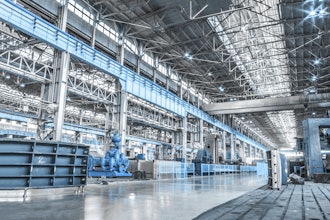
Sustainability is no longer just a buzzword—it’s a driving force in modern manufacturing. From conserving resources to embracing social and economic responsibility, manufacturers are rethinking their processes to meet evolving consumer expectations, regulatory demands and profitability goals.
Whether motivated by compliance or a long-term vision, companies are setting ambitious sustainability targets, such as adopting circular economy models or achieving net-zero emissions. Furthermore, as varied industries evolve, having the right tools to track and achieve these goals is essential.
Let’s take a look at how manufacturers are making sustainability a priority and the strategies shaping the future of production.
Sustainable Manufacturing: A Practical Approach
Sustainable manufacturing reduces environmental impact through cleaner, more efficient production methods. This includes optimizing energy and resource use, cutting waste and emissions and adopting circular economy principles to extend product lifecycles.
Key strategies include:
Minimizing Environmental Impact: Reducing pollution, protecting ecosystems and using sustainable materials.
Efficient Resource Use: Leveraging renewable energy, energy-efficient machinery and smart design.
Reducing Waste and Emissions: Lowering industrial waste, cutting greenhouse gases and improving efficiency.
Embracing Circular Economy Principles: Designing products for reuse, recycling and refurbishment to create a closed-loop system. These days you must balance the concept of people, planet and profits.
By integrating these practices, manufacturers can balance production with environmental and social responsibility while driving long-term success.
Sustainable vs. Traditional Manufacturing
Traditional manufacturing prioritizes short-term production and cost efficiency, often at the expense of environmental and social impact.
In contrast, sustainable manufacturing takes a long-term view, focusing on product lifecycles, reducing carbon footprints and aligning with eco-conscious goals. This approach not only minimizes environmental harm but also enhances resilience and long-term profitability.
The Importance of Sustainable Manufacturing
Sustainable manufacturing isn’t just good for the environment—it’s a strategic advantage. With consumers favoring companies that embrace environmental, social and governance (ESG) principles, sustainability helps businesses stay competitive while improving efficiency and resilience.
Environmental Impact: Lowering greenhouse gas emissions and reducing waste minimizes environmental harm and meets consumer and regulatory expectations.
Economic Benefits: Optimizing energy use and material efficiency cuts costs, strengthens customer trust and drives long-term profitability.
Social Responsibility: Ethical business practices, fair labor standards and safer workplaces sync with modern consumer values and regulatory requirements.
Integrating sustainability into operational best practices enables manufacturers to reduce risks, enhance brand reputation and position themselves for long-term success.
Sustainable Strategies for Manufacturing
Committing to sustainability goes beyond just making promises. Manufacturers must set realistic and achievable ESG goals, backed by concrete actions, to move away from superficial efforts and greenwashing. Real change requires a long-term commitment and clear transparency in operations, which are increasingly demanded by consumers, investors and regulatory bodies.
There are four core strategies that can drive meaningful sustainability in manufacturing:
Green Technology: One of the most impactful steps a manufacturer can take is adopting renewable energy sources, such as solar, wind and geothermal, to power operations. Additionally, using energy-efficient machinery and optimizing production processes helps to reduce the carbon footprint while maintaining productivity levels. These changes not only contribute to the environment but also ensure long-term cost savings for the business.
Material Innovation: The shift toward using recycled, biodegradable or sustainably sourced materials is another key component of sustainable manufacturing. By designing products for durability and recyclability, companies can extend product lifecycles and reduce the need for raw materials. Placing emphasis on circularity in product design helps lower the environmental impact by certifying that materials can be repurposed or reused instead of being disposed of.
Waste Reduction: Minimizing waste is an essential goal in sustainable manufacturing. This includes adjusting the use of materials, implementing comprehensive recycling programs and exploring ways to repurpose byproducts. By creating a closed-loop system, manufacturers can turn waste from one process into valuable inputs for another, thereby shrinking their overall environmental footprint.
Technology Integration: The use of emerging technologies, such as automation, artificial intelligence (AI) and the Internet of Things (IoT), can revolutionize manufacturing practices. Automation helps to streamline processes, curbing errors and improving efficiency. AI provides valuable insights for predictive maintenance, augmenting energy use and making smarter operational decisions. IoT devices enable real-time monitoring of resource consumption, helping manufacturers adjust their processes to further curtail waste and improve sustainability.
Adopting these strategies not only improves environmental impact but also positions manufacturers for greater resilience, efficiency and profitability in an increasingly eco-conscious marketplace.
Choose the Right Product Roadmapping Software to Support Sustainability
Sustainable manufacturing is key to conserving resources, lowering environmental impact and creating a healthier future for everyone and everything that lives on this planet. By adopting responsible practices, manufacturers can reduce costs, enhance profitability and build stronger trust with consumers.
To achieve these goals, leveraging the right tools is crucial. Product roadmapping software platforms can help manufacturers align their sustainability objectives with product development and operational strategies.
As you explore options, take the time to do your due diligence and thoroughly research different platforms to find the one that best suits your enterprise’s unique needs and goals. The right software can help you streamline sustainability efforts and ensure that your company stays on track toward a greener, more profitable future.






















